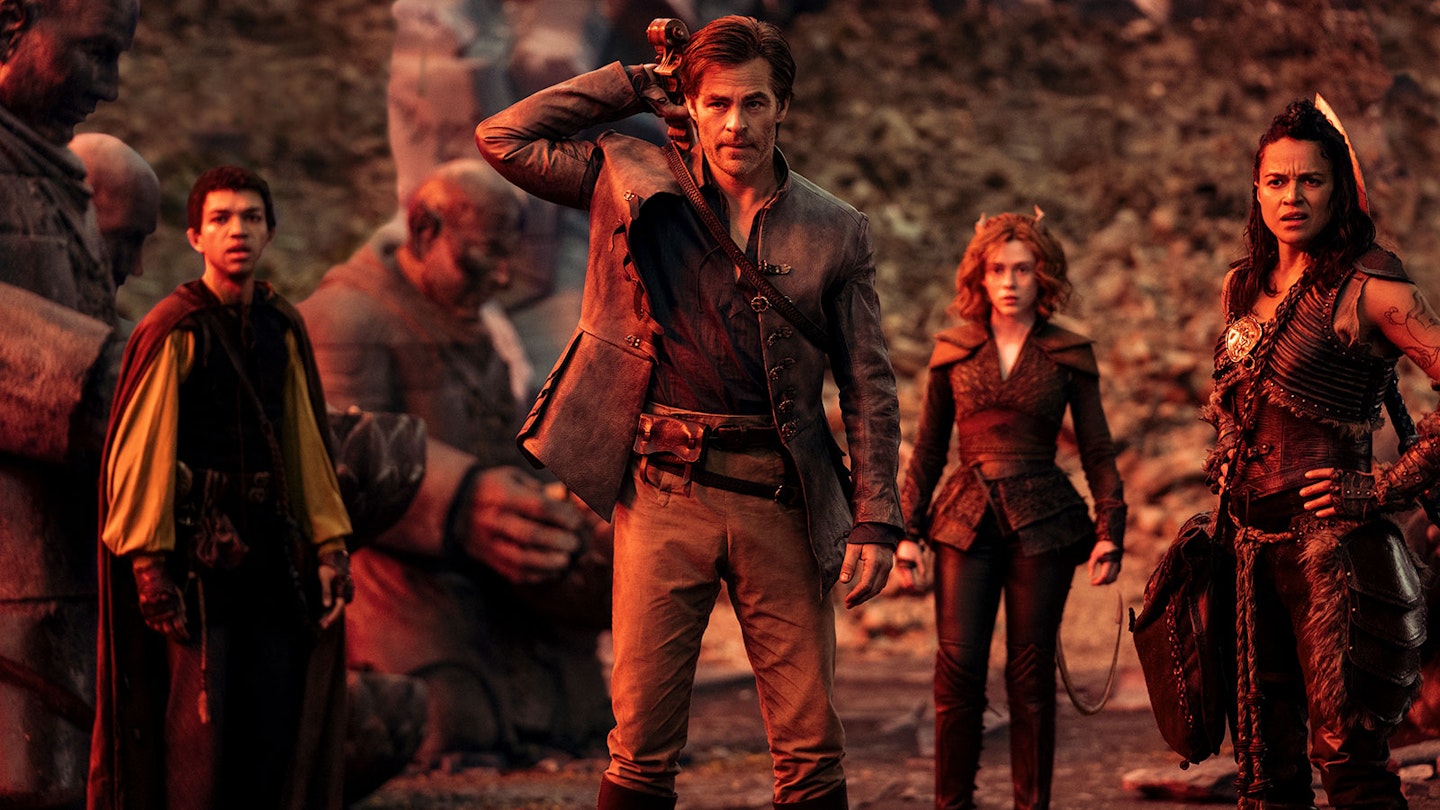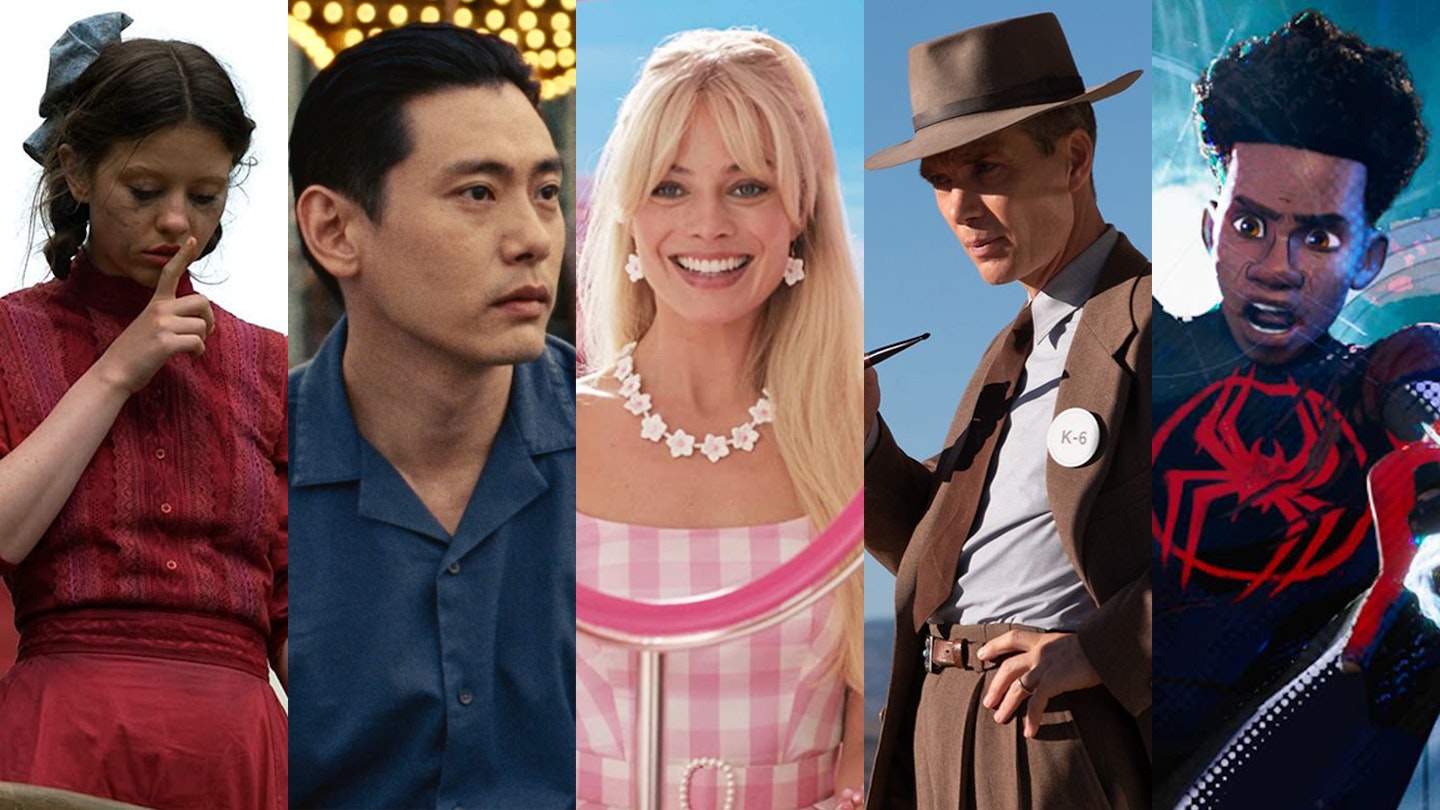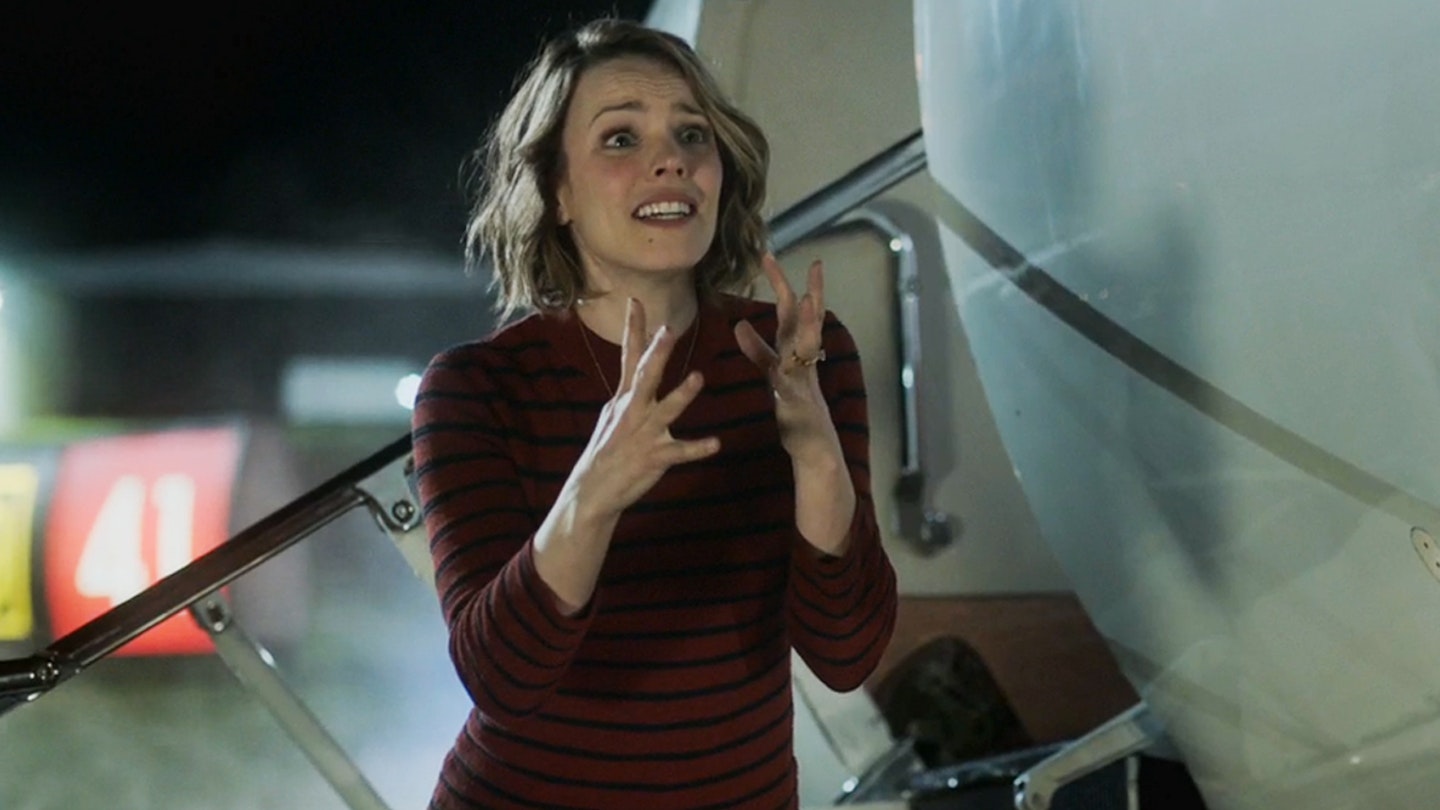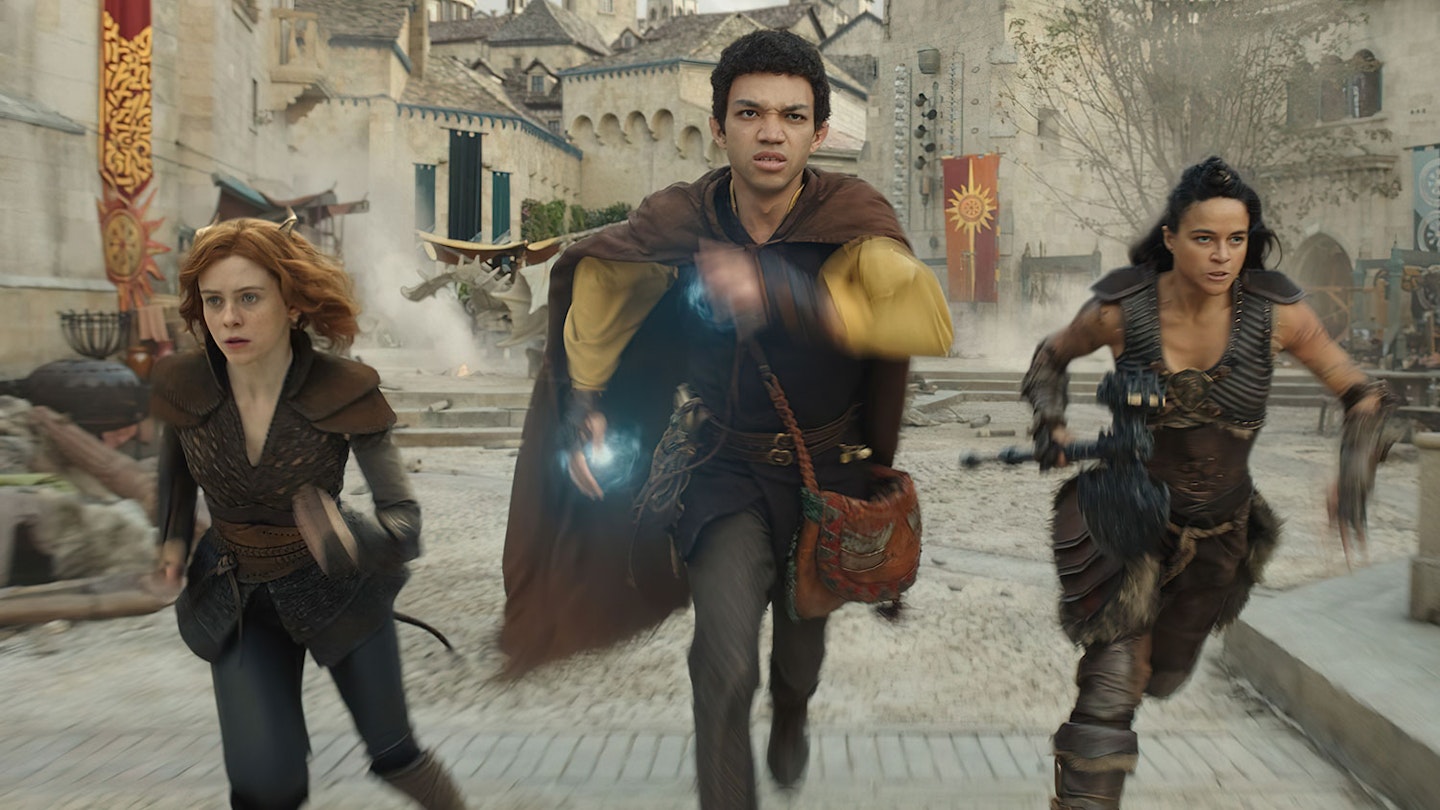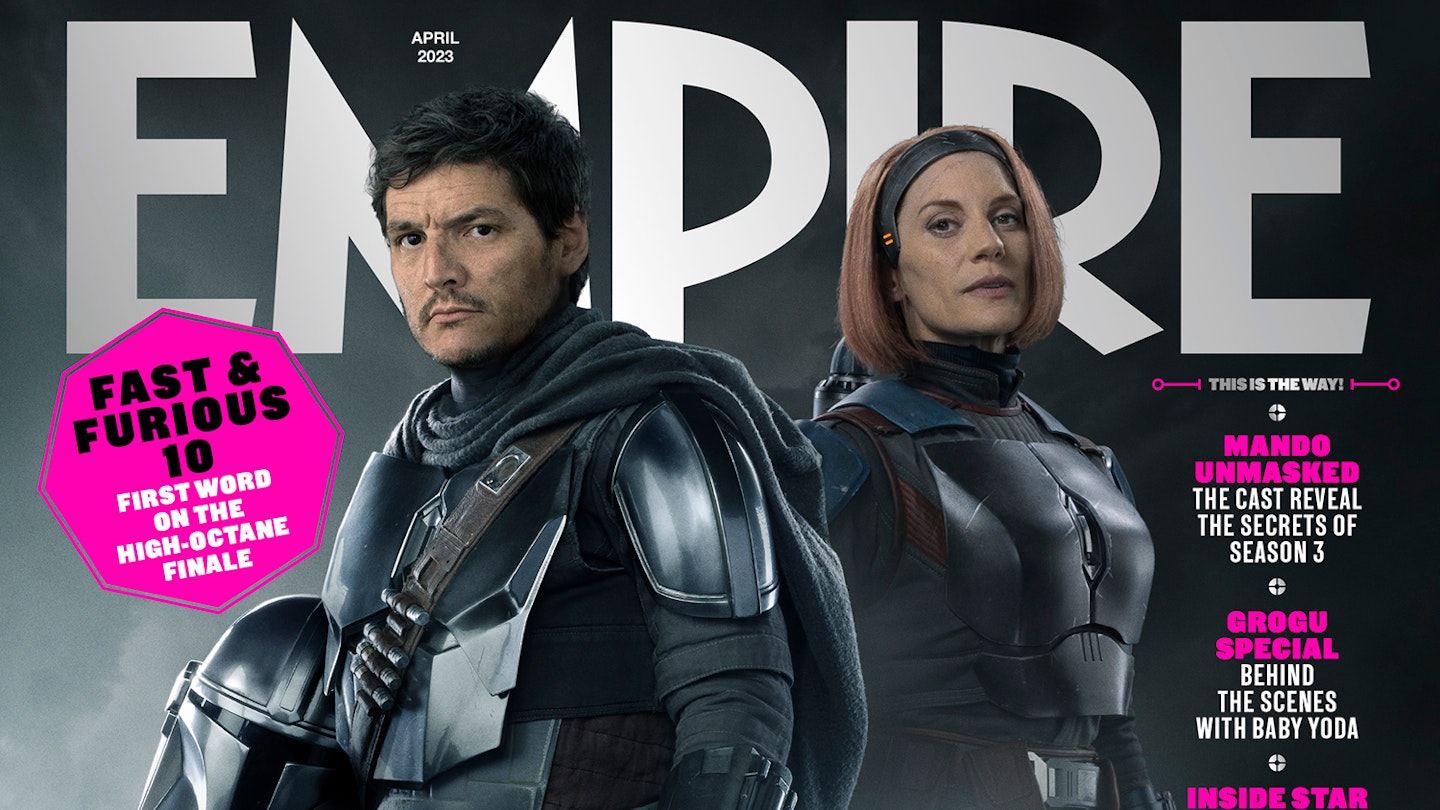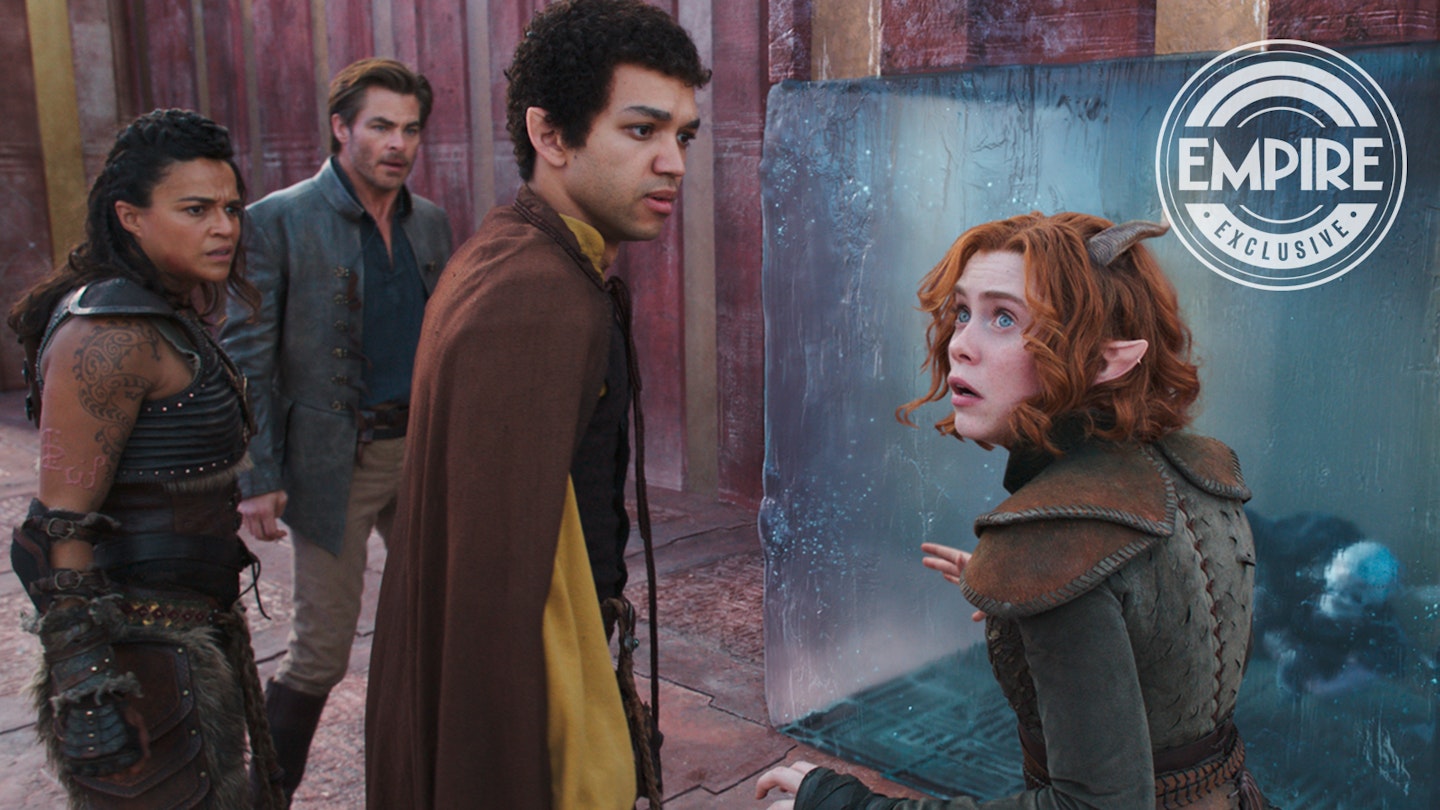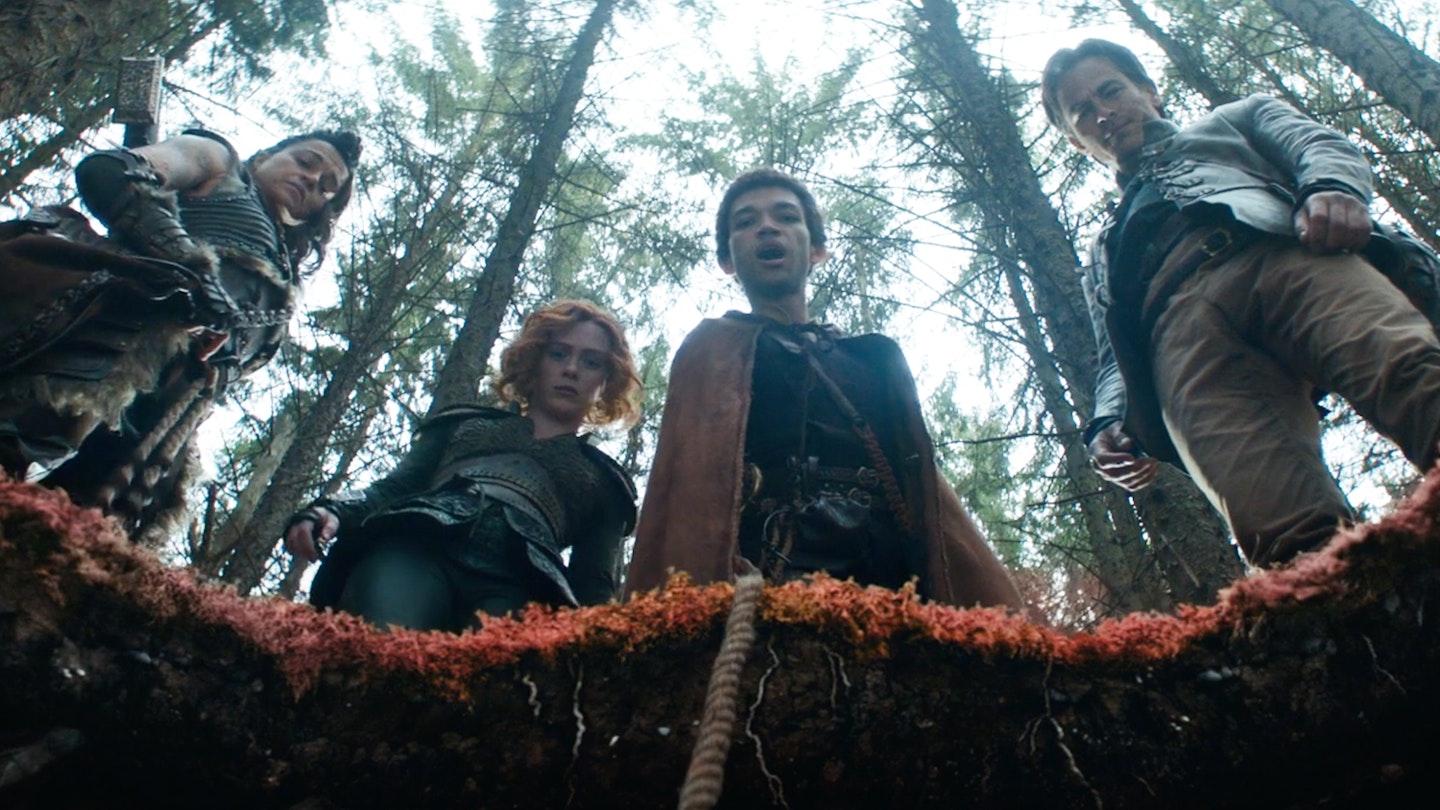The last attempt at a Dungeons & Dragons adaptation was a disaster to make you wish they’d lock the dragons in the dungeon and throw away the key. But this new effort comes courtesy of Game Night’s John Francis Daley and Jonathan Goldstein, and establishes them as the go-to team for any attempt to make a board-game related movie. If this is not quite as consistently hilarious as their last effort, it’s still just as much fun as a weekend D&D session and doesn’t require any complicated dice. Minute one establishes that we’re in a fantasy land, as a heavily armoured cart delivers a monstrous prisoner to an Orthanc-looking tower. Any sense of foreboding, however, doesn’t last long. This is a fantasy made by people who have seen Shrek, so that each time you’re presented with a looming fortress, hand-drawn map or tragic backstory, someone will undermine the moment with a quip, or Lorne Balfe’s score will deliver a witty Lord Of The Rings parody to poke fun at whatever is happening.
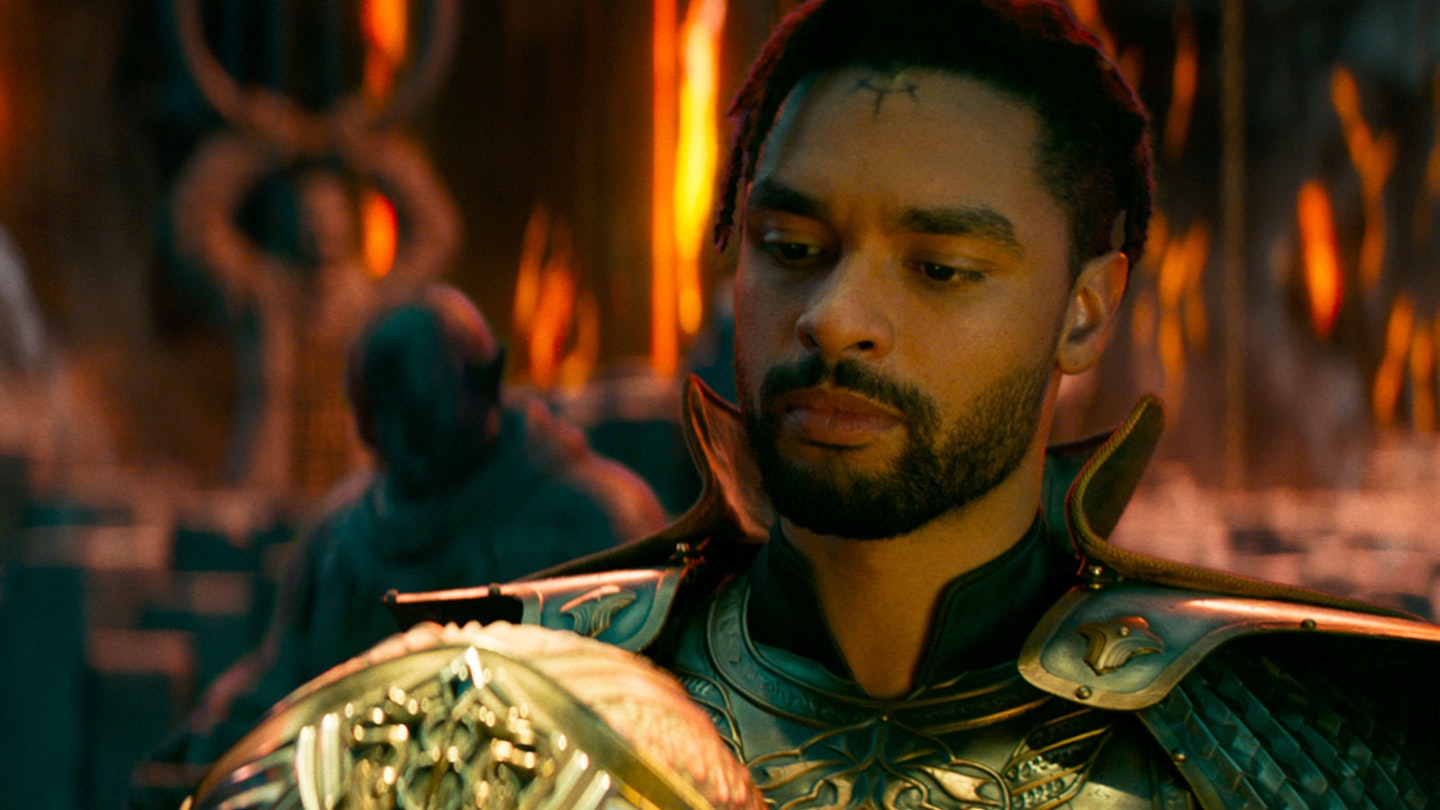
That knowingness is necessary because, almost by definition, a Dungeons & Dragons film must look like a pretty generic fantasy world. Call it John Carter syndrome, but when you’ve influenced almost everything that follows, it’s difficult to stand out. There have to be taverns, caverns, robed baddies and leather-clad heroes: all the tropes. Daley and Goldstein still pepper in visual innovation, filling the world with bird people, halflings that manage not to look like hobbits and the odd person who happens to have a cat head. Even their dragons — and the film does technically deliver multiple dragons and dungeons — are a wry take on the familiar terrors. But it was never going to be the visuals that distinguished this one: its success all comes down to the plot, the characters and the gags.
It turns out that there is a serious core to this story after all, one that serves as a really lovely tribute to the game.
That’s because, beneath the fantasy trappings, this is a heist movie, a group quest in the best traditions of the game. Ex-cons Edgin (Chris Pine) and Holga (Michelle Rodriguez), a bard and a barbarian respectively, set out to steal a treasure for commendably sympathetic reasons. They must find a way past smarmy con man Forge (Hugh Grant, living his Phoenix Buchanan best life) and evil sorceress Sophina (Daisy Head, genuinely unnerving).
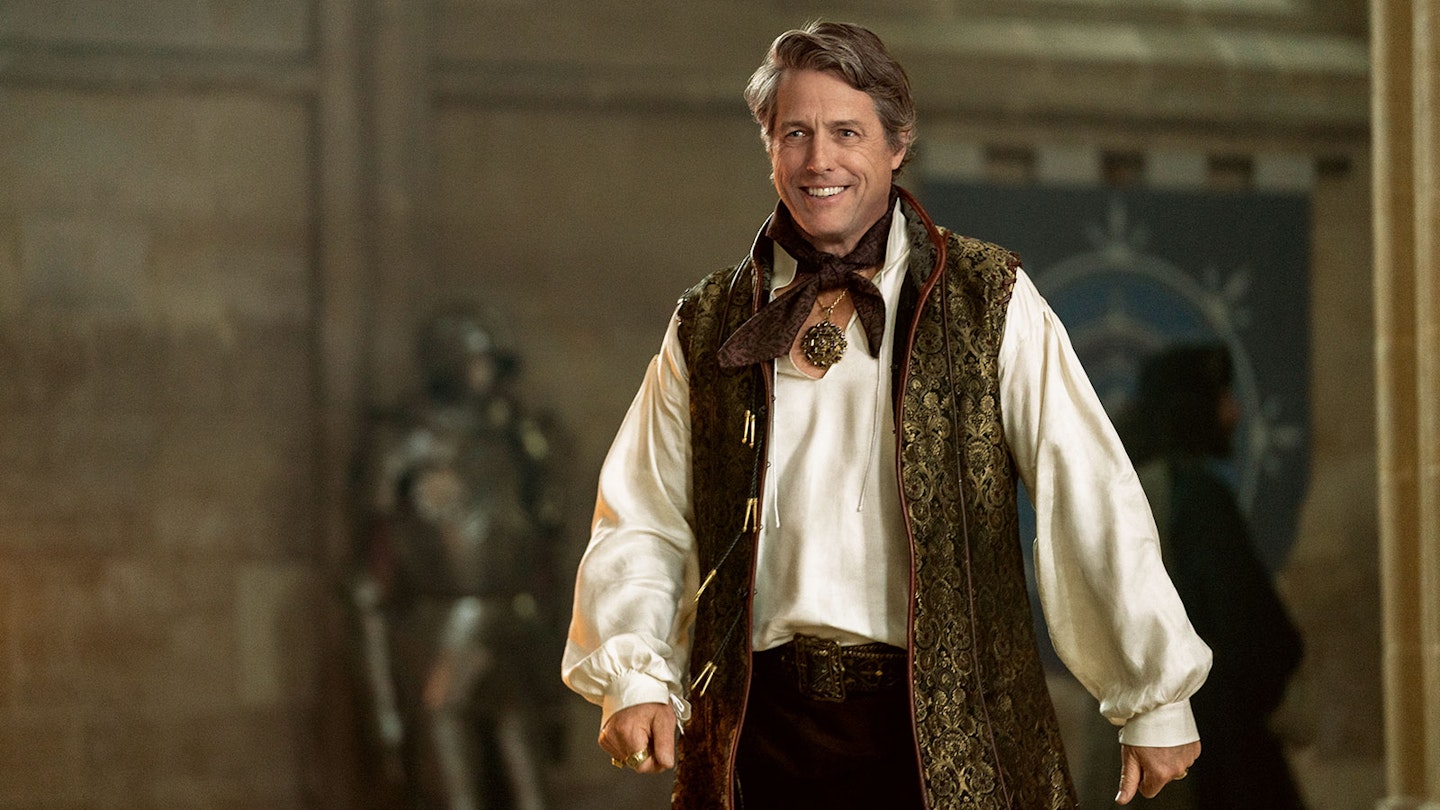
Against these formidable foes, Edgin and Holga recruit Justice Smith’s insecure sorceror Simon, who’s charmingly hapless, and Sophia Lillis’ idealistic shapeshifter Doric. The pair are a pleasant contrast to the breezily confident Edgin, Pine dialling the charisma to maximum and the effort to near-zero. Pine in blockbuster mode might be the most consistently fun of the Chrises — here mixing Captain Kirk’s insouciance with Steve Trevor’s mission focus. He’s paired beautifully with his glowering, platonic life-partner Holga, Rodriguez playing much the same character she does in the Fast films: all stoicism and physical strength, but really shining here as a comedy foil as well as a bone-crunching physical force.
This Ocean’s quartet becomes a quasi-family, and the film gives them room for eccentric and bickering growth. On the plot-front, however, it does get occasionally bogged down in side quests while our heroes seek the Noun Of Whatsit to break into the Fortified Location Of Wherever. But just as it all threatens to get lost in the fantasy weeds, Regé-Jean Page turns up with a scene-stealing turn as an outrageously perfect paladin. His tragic hero has no sense of humour whatsoever, and, like a more chiselled Drax, that utter lack of irony serves to make everyone else seem ten times funnier. He also gets some cool bits with a sword, before his shining morality prods Edgin to (reluctantly) become a very fractionally better man.
From there, everything proceeds exactly as it should. There are no big surprises in the last act, but there’s some of the film’s best comedy, and a bit where Chris Pine goes a-wassailing with a lute. The action climax packs in references to favourite bits of game play and even some visual nods to its players. And then they hit you with an emotional whammy. It turns out that there is a serious core to this story after all, one that serves as a really lovely tribute to the game. Our heroes — all outsiders, rejects and self-perceived failures — ultimately gain strength, acceptance and friendship in the found family that they build together. As the adaptation of a game that helped generations of socially awkward teens to find their tribes and their confidence, that’s a beautiful note to hit.
